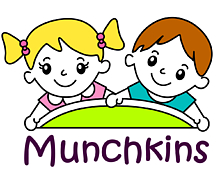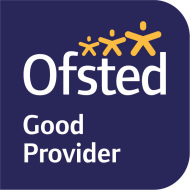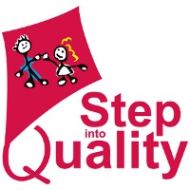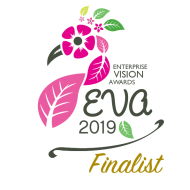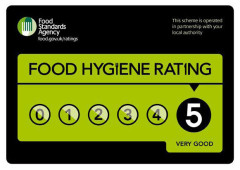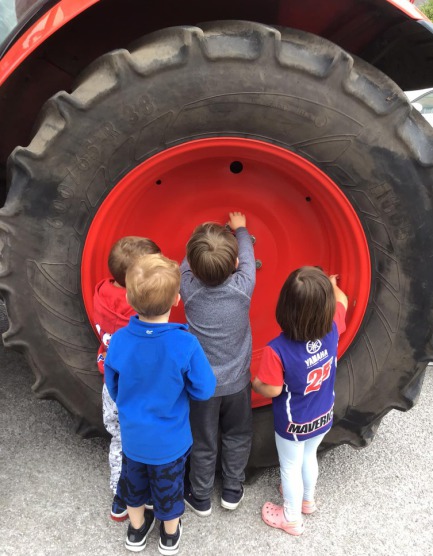Our nursery curriculum
The first five years of a child's life are considered to be THE most crucial in terms of overall human development.
Therefore, supporting a child's development, whilst providing a diverse range of early experiences, in combination with forming solid relationships, is vital in helping shape a child's future success.
The Early Years Foundation stage (EYFS) is a compulsory DfE framework, that sets standards for learning, development and safe care for children aged 0 to 5 years olds. It seeks to ensure children acquire a broad range of knowledge and skills that are necessary for future success, by promoting high quality teaching and learning, so that every child is well prepared for their transition to school and beyond.
The EYFS consists of seven areas of learning and development, that we use to structure our curriculum. The 'Prime areas' provide a fundamental base for children's learning and development, and they underpin learning in the four 'Specific areas'. All areas of learning carry equal importance in a child's development and are interconnected.
Prime Areas
* Communication and Language (CL)
* Physical development (PD)
* Personal, social and emotional development (PSED)
Specific Areas
* Literacy (L)
* Mathematics (M)
* Understanding the world (UTW)
* Expressive arts and design (EAD)
The Early Years Foundation Stage (EYFS) centres on four fundamental principles, that shape our daily practise.
A unique child
Every child is a unique child, who is constantly learning and can be resilient, capable, confident and self-assured.
Positive relationships
Children learn to be strong and independent through positive relationships
Enabling environments
Children learn well in an enabling environment, in which their experiences respond to their individual needs and there is a strong partnership between practitioners and parents / carers.
Learning and development
Children learn and develop in different ways and at different rates. The EYFS covers the education and care of all children in early years settings, including children with special educational needs and disabilities.
Our Curriculum
At Munchkins, we use the EYFS (1) as the skeleton for our curriculum.
Alongside the EYFS, we use the non-statutory curriculum guide, Development Matters (2), which acts as our 'progression framework'
Development Matters offers a top-level view as to how children develop, and is used by our practitioners, as it offers insight and suggestions to support development, that enables us to meet the needs of our children.
To enhance our curriculum, we implement within daily practise aspects of development that we believe are fundamental to our core values; that we wish our children to learn and know, which builds upon the quality of our teaching and learning.
Our Values (3)
Happiness
Caring
Learning
Quality
Community
Our Aims (4)
For children to be happy.
For children to be confident and independent.
For children to explore new thinking and build on knowledge and skills each and every day.
For children to feel a part of our community.
Our Ethos (5)
Happiness - of our children, parents and staff.
Our Teaching and Rationale (6)
To provide our children with a diverse, wide range of experiences and learning opportunities, in order to help every child flourish and reach their full potential.
Therefore, we:
* Watch our children.
* Study how they play and learn.
* Have strong links with parents to find about their child's interests.
* Listen to what our children say about their interests and curiosities.
* Implement learning opportunities that consider a child's interests and stages of development - to meet them where they are at, and to progress from that point, to get them to where we want them to be.
As a means of effectively delivering our curriculum, when engaging with children, we focus on the 3 I's.
Intent
This is 'why' we do what we do.
What do children know?
What do we want them to learn?
What do children like learning about?
What are our aims for an activity?
What skills or knowledge do we want children to have?
Implementation
This is how we do things - the process of putting our plans into effect.
We deliver our curriculum through: topic work (chosen themes such as transport, bugs / insects, healthy eating, animals etc) through child-led or adult-guided activities, through small group activities, 1:1 activity, through daily routines, through speaking to parents, through direct discussions with children, and through knowledge of each individual child.
Impact
Focuses on the outcome of our engagements.
What has been the impact of the experiences?
How are children doing?
How are children progressing?
What value has been added to their learning?
What can we do next?
